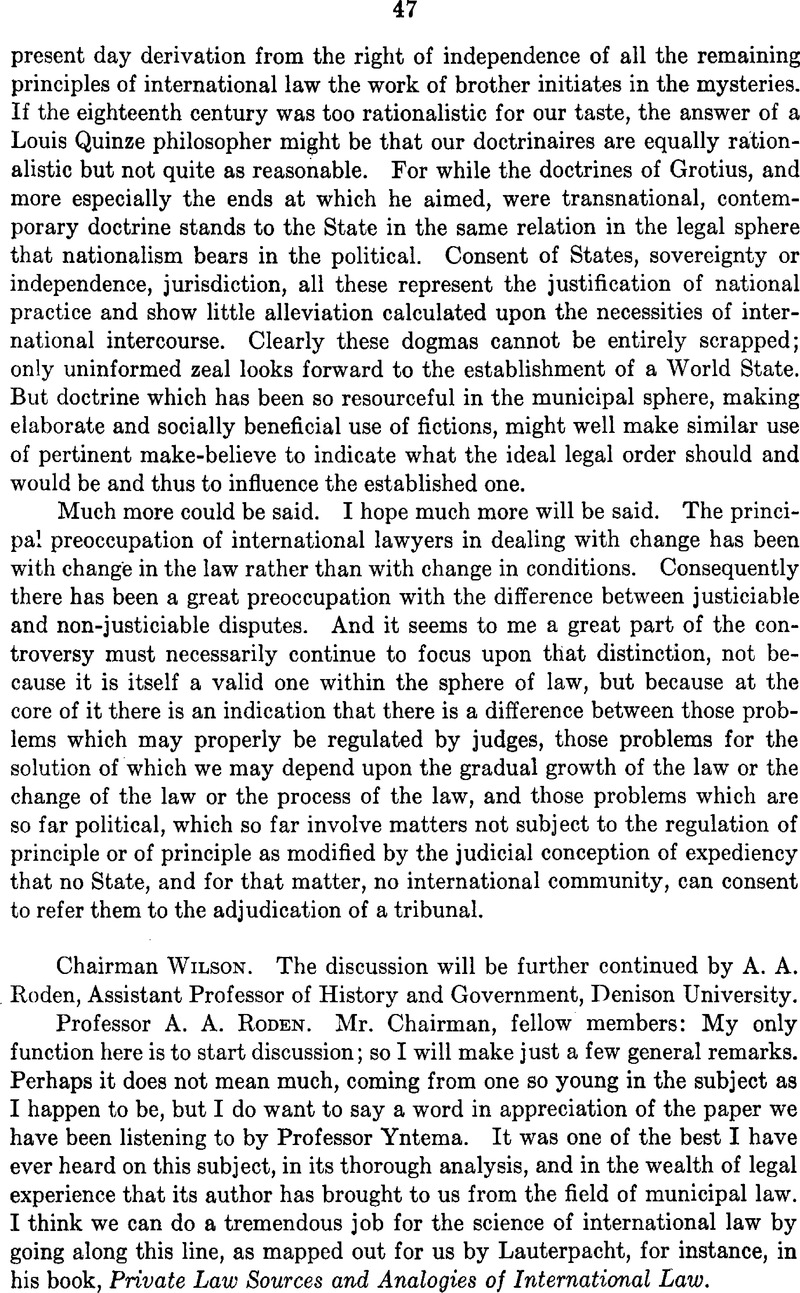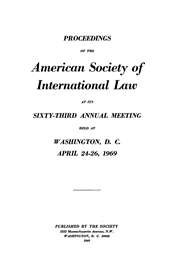No CrossRef data available.
Article contents
Discussion led by Sanford Schwarz and Albert A. Roden
Published online by Cambridge University Press: 27 February 2017
Abstract

- Type
- Second Session
- Information
- Copyright
- Copyright © American Society of International Law 1936
References
1 United States v. Mexico, For. Rels, of U. S., 1902, App. II, pp. 15-18; American Journal of International Law, Vol. 2 (1908), 898-902.
2 See The Chorzow Factory, Judgment No. 13, Series A, No. 17, Series A/B, No. 32, 1 Hudson, World Court Rep. 646, 664; and Advisory Opinion No. 11, The Polish Postal Service in the Free City of Danzig, Series B, No. 11, Series A/B, No. 15, 1 Hudson, World Court Rep. 440, 459.
3 New Jersey v. Delaware (1933), 291 U. S. 361, 383^384.
4 International Law, p. 26.
5 (1838) 12 Pet. 657, 755; (1840) 14 Pet. 210.
6 (1907) 206 U. S. 46.
7 Art. 5 of the Budapest Articles of Interpretation of the Briand-Kellogg Pact of Paris made by the International Law Association in 1934 reads: “The signatory States are not entitled to recognize as acquired de jure any territorial or other advantages acquired de facto by means of a violation of the Pact.” And Art. II of the Argentine Anti-War Pact declares that as between the parties thereto “territorial questions must not be settled by violence, and that they will not recognize any territorial arrangement which is not obtained by pacific means, nor the validity of the occupation or acquisition of territories that may be brought about by force of arms.”




